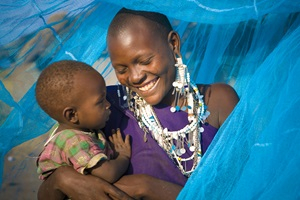The World Health Organization convened the second meeting of integrated vector management (IVM) stakeholders in Geneva, Switzerland, on 13 & 14 January 2011. Participants included a broad range of partners from national programmes, the commercial sector, academia, donors, and international and bilateral organizations.
Gains in malaria control are threatened by the emergence of insecticide resistance in Africa; in Asia and the Americas, countries are struggling to respond to increasingly large epidemics of dengue sweeping through their communities. Natural disasters, floods and earthquakes accompanied by fly and mosquito-borne disease outbreaks are challenging emergency relief operations. Constricting financial resources and a shortage of public health professionals are compounding these problems.
The reorientation of national control programmes towards IVM provides an opportunity to tackle such problems and improve the efficacy, cost-effectiveness, ecological soundness and sustainability of programmes. The IVM stakeholders agreed on the tools, advocacy needs, training products, manuals and policy frameworks needed to achieve these goals as well as the partnerships, strategies and plans to implement programmes. Stakeholders are committed to pool resources, share expertise and work together to further develop the tools and products for vector control, and to use the IVM framework to rationalize and optimize efforts to meet the growing global challenges of malaria, dengue and other vector-borne diseases.
